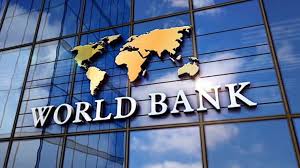Business
A’Ibom Communities Protest Relocation Of Oil Town Project
Host communities of the new Oil Town Project in Eket and Esit Eket Local Government Areas in Akwa Ibom have protested against alleged plot to relocate it from Iko Otu, Eket.
Our correspondent reports that hundreds of placard carrying youths, elders and women on Sunday embarked on demonstration from the site to the palace of the traditional ruler of the community.
The protesters delivered a petition to the Village Head of Idung Udo in Eket, Chief John Udoete and addressed to President Goodluck Jonathan.
Addressing the protesters, Mr Ephraim Enembong, the Chairman, Eket Community Development Foundation, commended their peaceful conduct.
He said “I can understand how you feel, after anticipating the take-off of a project of this magnitude, only to hear that the Ministry of Niger Delta Affairs is contemplating taking the project away from our land.
“Your resort to civilised option of a peaceful protest and complaints in writing to the president is highly commendable.
“I am hopeful that there will be an intervention on this matter shortly.”
Also speaking, Elder Udo Anwan, a community leader in Esit Eket, urged the Ministry of Niger Delta Affairs to retain the original site to avoid conflict among communities in the area.
He said: “my people are angry because the Ministry of Niger Delta Affairs came, asked for land and the community, made up of Eket and Esit Eket volunteered and gave the land in Iko Otu for sitting of the Oil Town Project.
“They came in, went through the massive land area covering over 300 hectares and in the process farm crops, shrines and artifacts were destroyed while surveying the land.
“Unfortunately, we have just been told that the same Niger Delta ministry has relocated the project from Iko Otu to another location in Esit Udua.
“This will really cause friction between the two communities so the president should intervene immediately.”
Responding, Udoete assured the protesters that the petition would be forwarded to Gov. Godswill Akpabio for onward delivery to the president.
He assured them that efforts would be made to resolve the issue with relevant authorities.
Business
PETAN, Others Unveil ALCO, Get NCDMB’s Support … Mull Synergy With APPO, AU

Business
AON Lifts Ban On Freed Ibom Air Passenger

Business
Ex-NIMASA DG Harps On Blue Economy Importance

-

 Featured5 days ago
Featured5 days agoNigeria Accounts For 70% Of 11m Illegal Arms In W/Africa
-

 Business5 days ago
Business5 days agoAfDB Secures N3.4trn For Agro-industrial Processing In Nigeria
-
Business5 days ago
Investment Flow To Nigeria Drops By 70%
-
Business5 days ago
CBN Plans Legal Action Against FX Contract Violators
-

 Business2 days ago
Business2 days agoPETAN, Others Unveil ALCO, Get NCDMB’s Support … Mull Synergy With APPO, AU
-

 News2 days ago
News2 days agoNigeria’s Debt To W’Bank IDA Hits $19.2bn -Report
-

 Sports2 days ago
Sports2 days agoD’Tigers flawless finish against Lions in AfroBasket
-

 Sports2 days ago
Sports2 days agoNigeria delegation Visits London over 2030 Commonwealth bid

